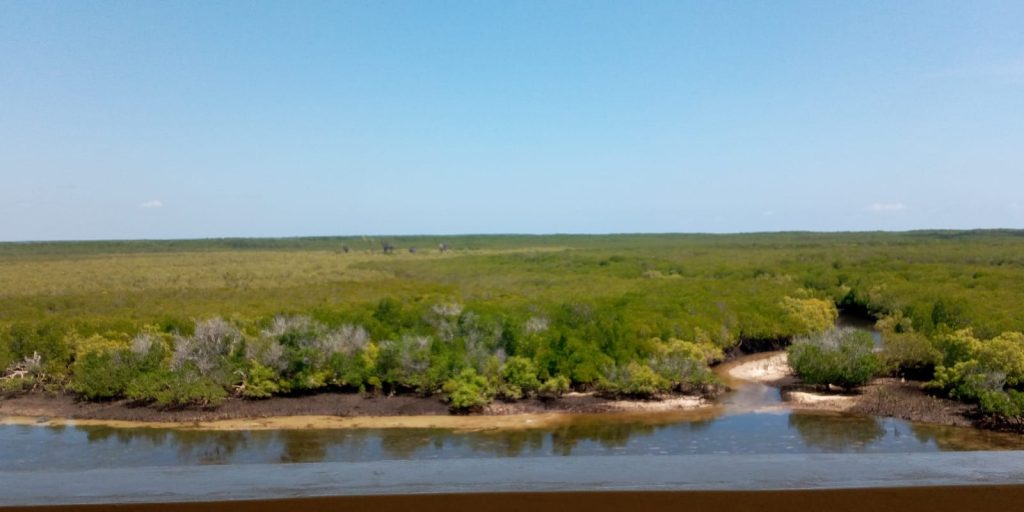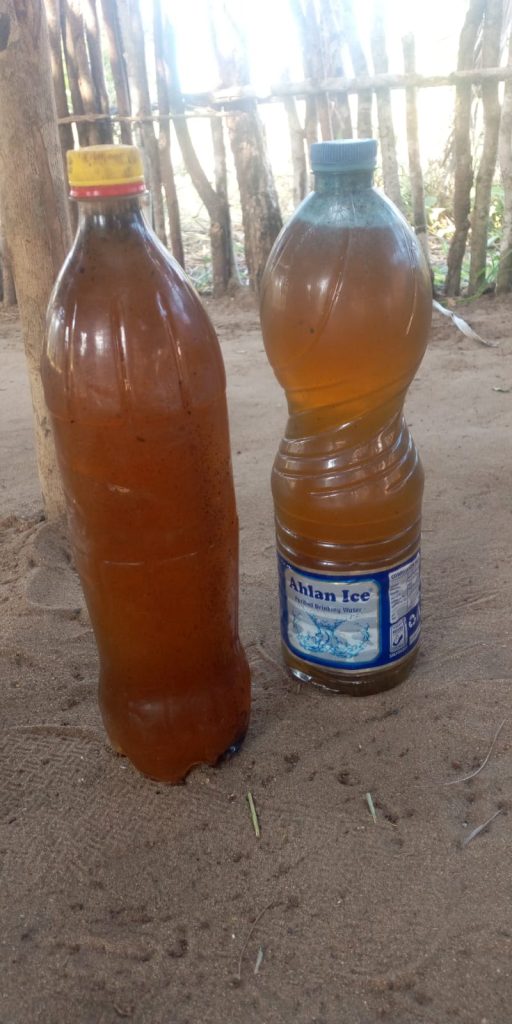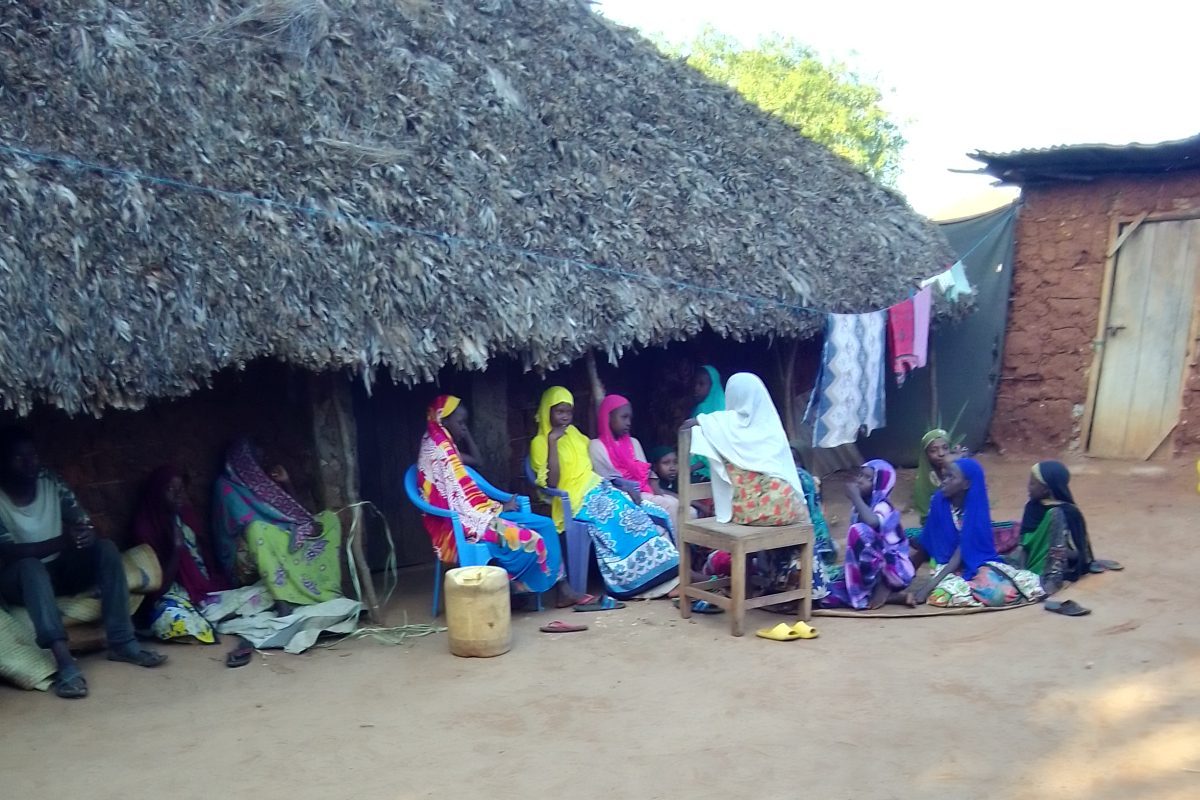Halima Yusuf stands solemn at the brink of the Boni Forest, her heart weighed down by concern. She gazes out over the verdant expanse that has been her haven, sanctuary, and livelihood for as far back as memory stretches. A solitary tear trickles down her cheek, yet she nods with a glimmer of hope. For today, on World Environment Day, amidst the trials and tribulations, she finds a beacon of possibility.

For Halima, this day holds a significance far beyond mere global observance; it’s a poignant reminder of her people’s intrinsic bond with nature and the urgent call to shield their environment. With the theme of Land Restoration, Desertification, and Drought Resilience echoing in her mind, she harbours a silent hope that one day, she’ll lead the charge in restoring her beloved Boni Forest to its former glory, freed from the shackles of governmental gazettement.
“Our forest is under threat,” Halima continues, her eyes reflecting determination and worry. “If the government does not return the forest to the Aweer, we risk losing our home, resources, and culture.”
Hailing from the Aweer community, also known as the Boni, Halima’s existence intertwines seamlessly with the forest’s rhythms. Her roots run deep in the land, nurtured by the traditions of her hunter-gatherer ancestors. Yet, as times evolve, so do the challenges. Restrictions imposed by the Kenya Wildlife Service curtail their age-old hunting practices, forcing adaptation to new sources like honey and wild fruits. Yet, Halima remains acutely aware of the forest’s indispensable role in their survival.
The looming threat of gazettement casts a shadow over their way of life, jeopardizing their resources and very identity. But amidst the turmoil, hope emerges from the Aweer Bio-cultural Community Protocol (BCP). This grassroots initiative kindles a flame of optimism, emphasizing the importance of conservation and sustainable practices to safeguard their forest and way of life.

“We gather honey, wild fruits, and traditional medicines from the forest,” Halima explains. “The BCP will help us document these practices, showing the world how to live sustainably. But without protection, all this knowledge and these resources could be lost.”
However, the path forward is fraught with challenges. Halima’s impassioned plea for legal empowerment underscores the vulnerability of their unregistered land in the face of historical injustices and governmental encroachment. Yet, she remains undeterred, championing community involvement in decision-making and calling for solidarity and action to preserve their environment and heritage.
“Our way of life teaches us to respect boundaries and use resources wisely,” Halima says. “We don’t cut down live trees, hunt indiscriminately, or deplete water sources. Elders pass this knowledge to the younger generation, ensuring we live in harmony with nature.”
“We need legal empowerment to protect our land rights,” Halima urges. “Our land is unregistered, and without proper legal frameworks, we are vulnerable.”
In Milimani, a bastion of Aweer settlement, unity reigns supreme. Here, leaders chosen for their wisdom and respect guide their community through adversity. Traditionally dominated by men, leadership roles now embrace women like Halima, whose unwavering advocacy for environmental and cultural preservation resonates deeply.
“Our leaders, both men and women, play a vital role. Traditionally, men made decisions about land, but now, we include all family members. Women’s voices are crucial in our community.”

On this World Environment Day, Halima’s voice echoes through the halls of an Alternative Justice System conference in Nakuru. With fervour, she extols the importance of preserving the Boni Forest, emphasizing its integral role in sustaining their way of life and cultural heritage. As the gathering concludes, a palpable sense of solidarity permeates the air, fueling their resolve to protect their home for generations.
“On this World Environment Day, let’s commit to protecting our environment and heritage. The Aweer community is ready to fight for our forest, our home. Together, we can ensure a sustainable future for all.”
“Our forest is our life, providing us with food, medicine, and shelter. It teaches our children who we are and where we come from. If we lose the forest, we lose our identity.”
“Our ancestors fought to preserve this forest for us,” she continued. “Now, it is our turn to protect it for our children and grandchildren. We must stand united against the threats to our home.
With unwavering determination and the collective strength of her community, Halima embarks on a journey fraught with challenges yet illuminated by hope. As she stands at the forefront of the battle to safeguard the Boni Forest, she embodies the resilience and unity of the Aweer people. With each step forward, she reaffirms their sacred bond with the natural world, ready to defend it with all her might.

